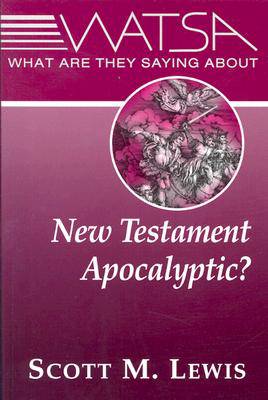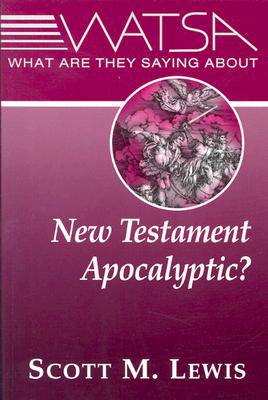
- Retrait gratuit dans votre magasin Club
- 7.000.000 titres dans notre catalogue
- Payer en toute sécurité
- Toujours un magasin près de chez vous
- Retrait gratuit dans votre magasin Club
- 7.000.0000 titres dans notre catalogue
- Payer en toute sécurité
- Toujours un magasin près de chez vous
Description
Scott Lewis begins his volume focusing on New Testament apocalyptic with Albert Schweitzer's famous 19th-century book The Quest for the Historical Jesus that concludes that both the worldview and the message of Jesus were thoroughly apocalyptic. And he brings us to the present with the heated debates generated by the historical Jesus research of the last 20 years and the rebirth of apocalyptic fervor at the beginning of the new millennium. The book focuses on five areas: 1) the attempts since Schweitzer to define the apocalypse genre and its constituent eschatology and theology 2) the debate over the question concerning the nature of Jesus' teaching and proclamation, and whether the apocalyptic statements attributed to him are genuine or products of the early church 3) the apocalyptic nature of Paul's proclamation and the central role it plays in his moral exhortation, ecclesiology, and spirituality 4) the nature of the message of the Book of Revelation and the different approaches to its interpretation 5) the application of apocalyptic theology and eschatology to the life of the church in the form of preaching, ethics, spirituality, and social justice; and 6) a concluding reflection A special concern of the book is the reappropriation of the apocalyptic tradition by the modern church in a manner that avoids the many misuses of this genre in the past. To this end, it is most important that apocalyptic theology be recognized for what it is: a theology of hope rather than a theology of fear. +
Spécifications
Parties prenantes
- Auteur(s) :
- Editeur:
Contenu
- Nombre de pages :
- 115
- Langue:
- Anglais
- Collection :
Caractéristiques
- EAN:
- 9780809142286
- Date de parution :
- 05-01-04
- Format:
- Livre broché
- Format numérique:
- Trade paperback (VS)
- Dimensions :
- 140 mm x 204 mm
- Poids :
- 163 g

Les avis
Nous publions uniquement les avis qui respectent les conditions requises. Consultez nos conditions pour les avis.






